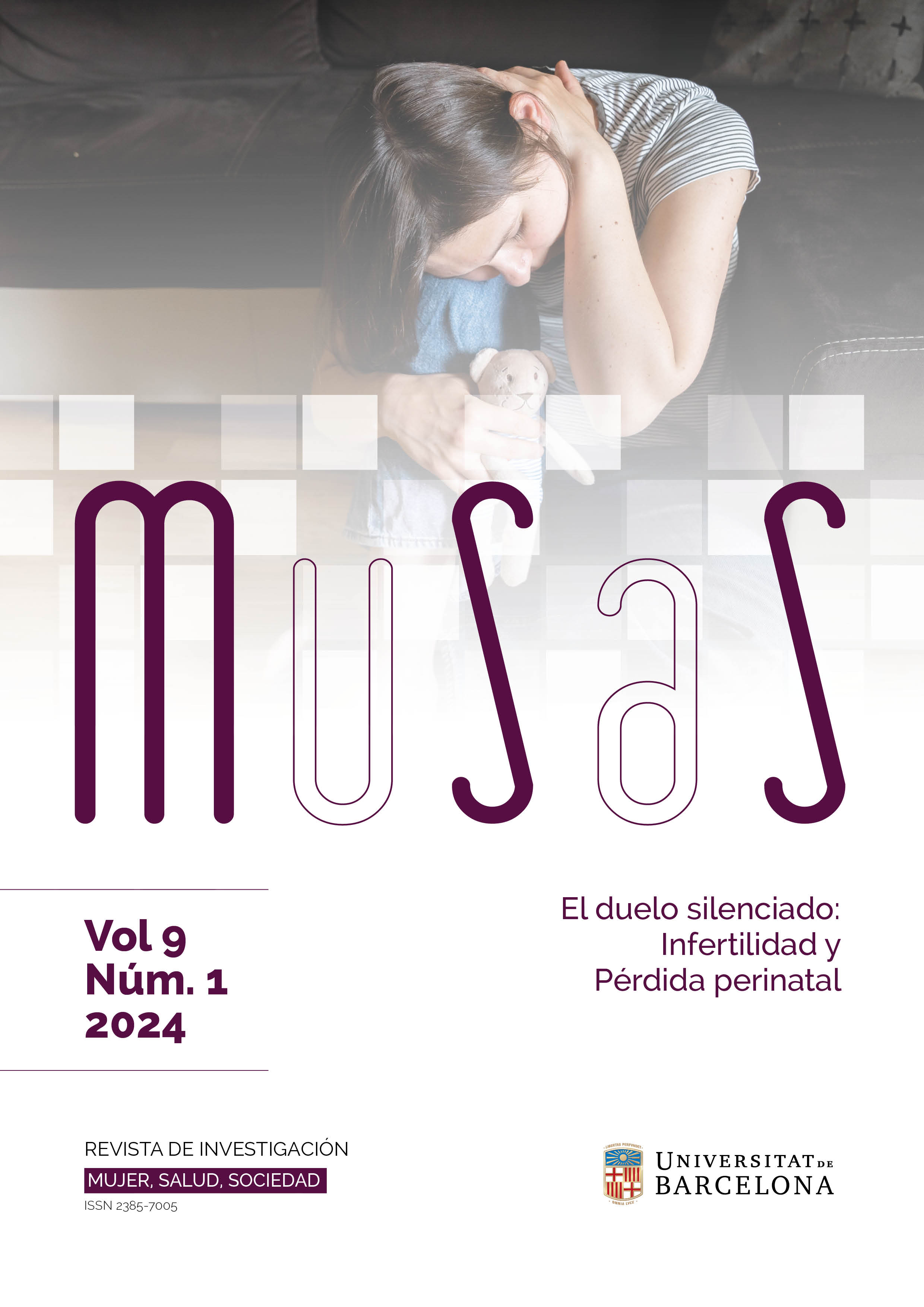Infertility and Perinatal Grief
DOI:
https://doi.org/10.1344/musas2024.vol9.num.1.1Keywords:
Infertility, Assisted Reproduction, Feelings, Perinatal Grief, Qualitative Study, PhenomenologyAbstract
Introduction. The age increases in the will to conceive have led to an increase in the difficulty of reproduction that is being compensated by the development of assisted reproduction techniques; however, the feelings accompanying their use are the same as in perinatal grief while not always recognized. Objective. To explore the feelings of grief of women and their partners in the sterility process, from the moment they access the first sterility consultation at the Hospitals of San Juan and Alcoy until the referral to in vitro fertilization techniques. Methodology. Qualitative research from the phenomenological perspective. Data collection through individual in-depth interviews. The information was recorded, transcribed, coded, triangulated, and interpreted. Analysis using the validated Atlas-ti 8 tool. Results. Three categories were identified: psychological, social and spiritual feelings. Those are, in turn, grouped into twelve subcategories: anxiety, frustration, sadness, fear, emotional ambivalence, justification, loneliness, trivialization, search for meaning, guilt and acceptance. Conclusion. Couples included in assisted reproduction programs expressed feelings of grief that match perinatal grief (anxiety, fear, frustration, ambivalence, social isolation, trivialization, search for meaning, guilt and acceptance). Gender differences continue to exist. The support of family, friends, and professionals is essential. The need to improve the quality of care is evident: with a continuity of professionals, with their training to provide comprehensive care and with the existence of protocols.
Downloads
Published
Issue
Section
License
Authors publishing in this journal agree with the following terms:
- Authors hold the copyright, but MUSAS holds the right of first publication.
- Manuscripts will be disseminated with the Creative Commons CC BY-NC license, which allows sharing it with third parties as long as they recognize the authorship, the first publication right held by MUSAS and the license’s conditions






